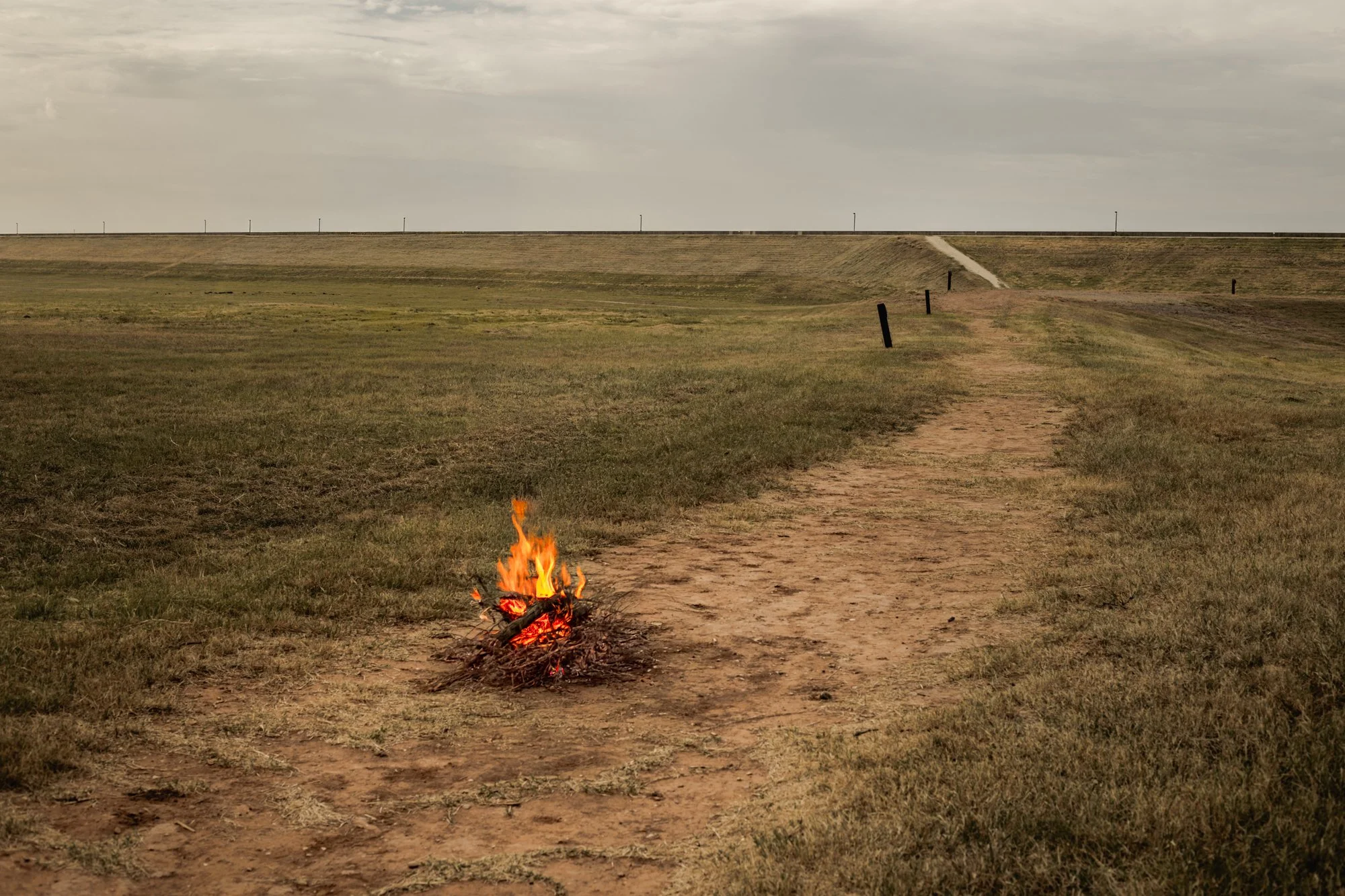A Fire Unquenchable
Photo by Gabrielle Johnson, Chasing Horizons Photography
An Essay by September Santiago
A minute incandescence often radiates brilliantly in a Stygian darkness. Countless evenings have I spent, gazing at an icon of the Good Shepherd. As I pray, I burn only my miniature candlestick, its bronze plate engraved with the word hesed, the Hebrew word with one translation meaning ‘loyal love’. Because it is His affection that illuminates a room, which would otherwise be carved by shadow. Enough light emanates from its glow to reveal Christ and the sheep on His shoulders–nothing more.
Various seasons of life have walked in and then out. Alongside them, I've lived through the ebb and flow of spiritual vitality. Sometimes, our inner flame feels small enough to illuminate what is right in front of us but no larger than a flickering brightness in an otherwise cold hearth.
2 Timothy is St. Paul’s last letter to the early Christian church. Discouraged by the struggles of the local body in his day, Timothy’s zeal was waning, his spiritual gifts muted. Despite his rich faith background, he still needed Paul to remind him to stir up the ministerial abilities God had lavished on him: “For this reason I remind you to fan into flame the gift of God, which is in you through the laying on of my hands. For the Spirit God gave us does not make us timid, but gives us power, love and self-discipline” (2 Tim. 1:6-7, NIV).
To a modern reader without context, Timothy’s business with an ancient church sounds far off and irrelevant. A closer look yields more. What were once just words on a page become puzzling details, smoothly put together over time and through life experience.
Each morning arrives, and with it a longing to feel more, feel deeper. In the air is the smell of a faith decaying. Cloudy skies, 9-5 jobs, and messy homes seem to be the current curation. The moon and stars appear and laundry loads add up, the day’s tasks are pushed to tomorrow, and friendships feel impossibly complicated. It’s not only the mundane but evil that drags at us: loss, heartbreak, and death pepper our memories and imagination. A weariness, unbearable and aching, writhes through us. Inwardly, the hearth feels stone-cold. Empty.
Over months of fighting tooth and nail to keep an artificial passion alive, I’ve come to only one solid conclusion: accept it. Refuse to continue ignoring or replacing the feelings of emptiness or spiritual desert and embrace that as seasons come and go, so do the flames. Wholeheartedly stoke what is there, do not sleep in inertia. Tranquil are the minds that remember where Jesus is present. There is always at least one blazing coal; He will not allow our faith to be removed. Isaiah says about Him, “A bruised reed he will not break,and a smoldering wick he will not snuff out, till he has brought justice through to victory” (Is. 42:3, NIV).
We were made to be in the heartspace, whether it be lit by a forest fire or one lone flame. Sometimes a sleepy heart in the thick of it all is the ultimate trial we face on this side of eternity-–the place we arrive at when all the world seems dim. Here, we have an opportunity to cling to Jesus in newfound ways. Miraculously, revival meets us in those unexpected, worn spaces.
Wilderness demons whisper faith is dead, but we are not made to submit to anxiety, chaos, or the scattering of voices gripping our attention. Fear and silence hesitate, hatred divides, and confusion destabilizes. Courage emboldens, love brings together, and clarity comes when we live out a faith that is fully alive, even when it seems to shrink. Paul’s plea to Timothy is as relevant now as it was at the time of its origin.
We shouldn’t grow weary of doing good (Gal. 6:9) nor allow our lamps to go out (Matt. 25:8). I don’t want to be caught when the Bridegroom returns with my light growing dim. Let us test the temperature of our faith; are we asleep at the helm or wide awake, our senses alert to sloth, lies, or placation? Am I tending the flame in my heart’s hearth, caring for it when I wander in the wilderness seasons of my life? Today’s culture of entertainment and amusement makes it all too easy for disciples to live in accidental nihilism.1
A coal left burning within is both a warning and an animating hope. Be aware of where your faith seems weak and invite the Lord to revitalize you. Return to your first love. Remember that lasting fires require gentleness and time to continue in brightness and strength.
A single flame, fanned by gentle breath, can set kindling ablaze. A few small embers, when sheltered and nurtured, can grow into a fire.
Abbie Gamboa sings one of my go-to songs, “moonflower.” She explores themes of God as Father, us as His children, and the dependence we have on Him throughout our whole lives, no matter how old we are. What makes me weep with hope is the third and final verse:
I heard about a garden, somewhere south of London
Where moonflowers are hanging overhead
And though they're lovely in the light
The gardener said, "Come back tonight
The darkness makes the fragrance rise"2
Within my chest, those lines feed a steadily growing blaze. It is good to tend, and it is good to depend. Both are fuel for our inner spiritual lives if they are led by faith, for He will finish the work he has begun in us.
***
1. Ince, Rebecca (@rebeccaince). “Accidental Christian nihilism.” Splendor Letters, Substack, August 28th, 2025. https://splendorletters.substack.com/p/accidental-christian-nihilism?utm_source=publication-search.
2. Gamboa, Abbie, and UPPERROOM. “Moonflower.” By Jessie Early, Abbie Gamboa, Gabriel Gamboa, Oscar Gamboa, and Jason Upton. Released May 2023. Track 2 on pure. UPPERROOM.
September Santiago is a freelance ghostwriter and creative non-fiction essayist. She currently runs her own publication on Substack called Under Consideration, where she writes lyrically designed pieces that explore culture, faith, and literature. Her article on faith in cathedrals has been featured in Ekstasis magazine. She currently resides in the South. When she’s not writing, you can find her taking a class or engrossed in a classic novel.



